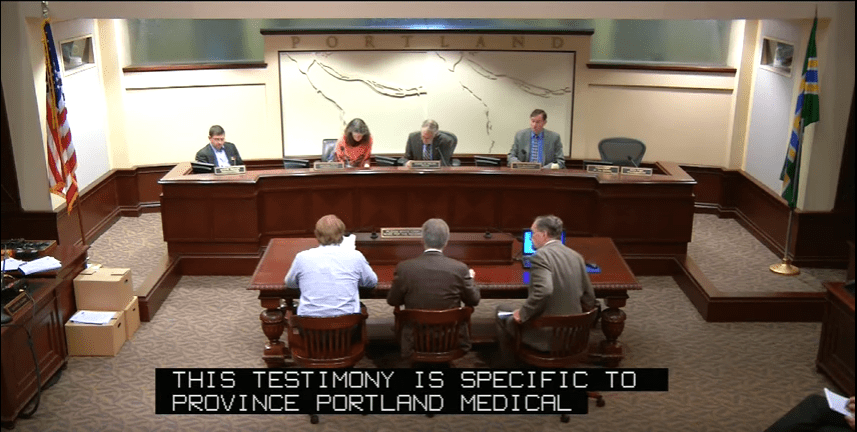In 2016, Portland parking advocates scored a number of important victories: in February, downtown meter rates increased; in April, City Council ordered development of performance parking policy; in July, a proposal to require parking in NW Portland was defeated; and, at the end of the year, minimum parking requirements from 2013 were effectively repealed. Still, on the ground, the state of parking policy in Portland is in the roughly same place as it was 15 years ago.
In the coming year, Portland’s City Council and the Portland Bureau of Transportation must move forward and make real progress on parking policy. Our ability as a city to take action on climate change and meet our citywide housing and transportation goals depends on the political will of City Council and PBOT to develop and approve effective parking management tools, with the help of Portland’s growing number of Shoupistas.
Stay tuned for more in-depth articles on these parking policy priorities.
1. Pass The Residential Permit Program and Parking Toolkit
Portland needs a new residential permit program, and fast. One has been in the works for years but it recently got shelved. With residential infill and more apartments with little to no parking on the way, Portland needs to get serious about on-street parking management.
2. Create In-Lieu Of Fee Options For Remaining Parking Requirements
Starting in February, developers of new housing projects with 20 or more units will be required to rent a percentage of those units at a rate “affordable” to people making 80% of the median family income. As part of the incentive package, those apartments won’t have required on-site parking. State law mandates that developers be allowed to pay in-lieu fees instead of building affordable homes, but if they do, they still have to build parking. Arbitrary parking mandates don’t make sense. Let developers pay additional fees in-lieu of parking stalls and use the money to build more homes!
3. Use Downtown Parking Meter Money To Fund Night Owl Transit
Last year, Portland increased the hourly cost of downtown meters by $0.40/hour, raising an additional $4 million a year in revenue. Opponents to parking management often oppose reforms on the grounds that late night workers don’t have transit options. Managing on-street parking and using the revenue to extend transit hours is a win-win.
4. Demand That PDC Build Housing Instead Of Parking Garages
The Portland Development Commission is spending at least $32 million in urban renewal funds on a hotel parking garage just steps away from the MAX Red Line and they have plans to build more garages. In 10 years will visitors to Portland really choose to rent a car and drive themselves to the Lloyd District? Long term goals for the city require investing less in cars and building more close-in affordable housing, PDC should support those goals.
5. Require Parking Cash-Outs And Tax Downtown Private Parking

Federal tax laws allow employers to pay hundreds of dollars a month, tax free, for employee parking, but don’t require equal benefits for employees who use other modes. California requires employers who pay for parking to provide employees with an equivalent cash option. This has been shown to be very effective at producing desirable mode shifts. Portland can do this and would, likely, reap major benefits.
6. Develop, Adopt, and Implement a Comprehensive City-Wide Parking Management Strategy
At the current rate, passing parking reforms and upgrading PBOT’s technology to effectively manage parking may take several more years. Portland needs a comprehensive plan to modernize our parking management policy to ensure we are using the curb lane efficiently and for the highest social good. Big changes are on the way and time is running out to reap the rewards of progressive parking policy.







